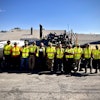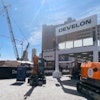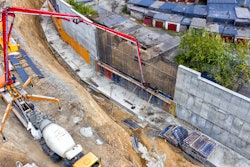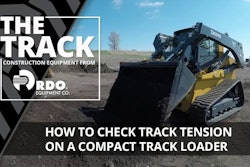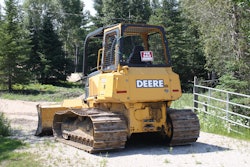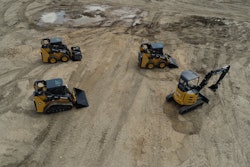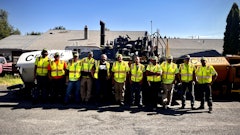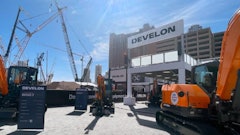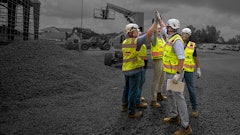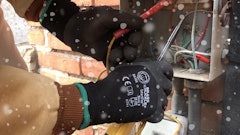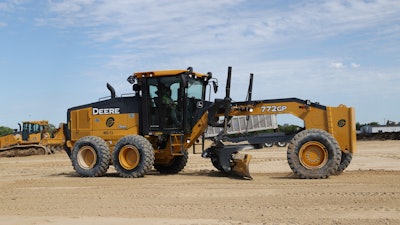
Used equipment has experienced a surge in popularity and for good reason. An uptick in specialized projects, economic ups and downs and slow availability of new equipment have all contributed to the boost in used values and demand.
Even with the advantages and practicality of buying used construction equipment, not every fleet manager or owner is eager to make the move on a pre-owned machine. Why? Because there are a lot of misconceptions about used equipment. For example:
- Doesn’t used equipment require more time and money to maintain?
- How do I know I’m not buying something with hidden problems?
- Can I even find the used machine I want?
To address the most common misconceptions and show the reality of used equipment, here are answers to five frequently asked questions.
1. How Do I Know I’m Getting a Quality Used Machine?
Buying used equipment comes with risk. Depending on sellers – how reputable they are and if they’re being fully transparent about the machine – a piece of used equipment certainly can be a bad investment. Or, it can be a great one. The key to knowing it’s a quality used machine is buying from a reputable source.
A trusted equipment dealer is one of the best resources for a used machine. Whether part of an existing rental fleet or a trade-in, used machines from a reputable dealership will have been well cared for by skilled, certified technicians.
Taking it a step further, some partnerships between manufacturers and dealers are designed to enhance the integrity behind the used machine. RDO Equipment Co., for example, participates in John Deere’s Certified Used Equipment program. Any machine bearing the Certified Used designation must pass a strict 100-plus point inspection, giving added peace of mind to the customer.
Dealers also want to establish long-term partnerships with customers, making them more likely to recommend a quality piece and provide after-sale support, including parts and service.
2. Will I Really Be Able to Find the Exact Machine I Want?
While the market and demand can greatly impact the supply, there’s typically always a good amount and variety of quality used machines available.
Availability is particularly good right now. Lead times on new machines have gotten shorter and demand has eased a bit, making used inventory more abundant compared to this time last year, especially when looking at machines 3,000 hours or less.
It can be tricky to find the right piece at the right place at the right time – which is again where partnering with a dealership offers advantages.
Dealerships with a network of stores have the ability to source machines from other locations. If the specific piece isn’t available at the local store, there’s a good chance the team can find it at another store and deliver it to the customer. 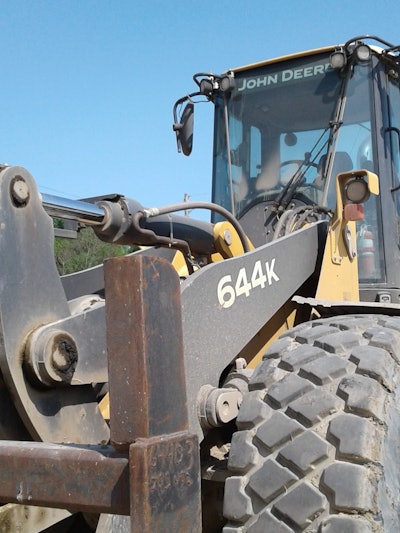
3. How Do I Know What to Look for in a Used Machine?
Let’s review the basics of what a discussion and inspection should entail.
First, ask for a full account of the machine’s service history. Can the seller provide detailed service records - from the basics to deeper dives into oil scans - and not just when but what was performed? Did service include the full manufacturer recommendations or just the bare minimum?
Find out how the machine has been used. If it was previously used for taxing work like heavy rock digging, or operated in a demanding environment like a pipeline site or areas where it could have been in standing water, that’s cause enough to go even more thorough on the inspection.
The final and one of the most important questions to ask is about the machine’s warranty. Many used pieces come with the factory extended warranty, which offers more than added peace of mind. Warranty coverage can vary. Typically, a factory warranty offers better coverage than an aftermarket one. And because there are multiple kinds of factory warranties – comprehensive, powertrain/hydraulic and powertrain – be sure to dig into the details to know exactly what it covers.
Next is the visual inspection. When it comes to this assessment, it’s perhaps more important to look for what you don’t want to see than what you hope to see.
7 Caution Signs When Buying Used Equipment
Before going to see the machine in person, ask for a variety of photos or even a walkaround video to help determine if a trip to see the machine is worth the time. Don’t rely on one person for this; include other experts like veteran operators and service technicians who really know the machine inside and out.
If proceeding with an in-person inspection, start with the undercarriage. Needing to change a few pieces of an undercarriage to patch an issue is common. However, if it looks like a full rebuild is in order, that could price it out of what’s sensible.
Get up close to tires, too. They can have cut sidewalls on the inside that can’t be seen in photos or video.
Move into the operator’s seat and run the machine until it reaches operating temperature. Move all the functions full range, until hydraulics go into relief, and hold for a few seconds. Drive in all gears, if possible. Dig, if possible, and feel for rough operation points. Look for obvious red flags like smoke and listen for noises that don’t sound right.
After the operation is complete, the final inspection should be for leaks, as well as one more check of implements, pins and bushings and key wear areas to ensure nothing major was missed.
5 Tips for Buying a Used Dozer
4. Used Machines Can’t Include New Technology – Can They?
The opportunity to integrate new technology is an exciting advantage of buying used equipment. Depending on the type of aftermarket solution, most used machines can be outfitted with the latest technology - everything from basic GPS tracking to advanced machine guidance and grade control technology.
In addition, the support side of technology typically follows the used machine to its new owner. For example, Deere offers its Connected Support solution for construction equipment, which includes preventive maintenance tracking, machine health monitoring and alerts and additional custom support for each customer’s needs. RDO and other dealers support this program on Deere machines.
5. Is Used Equipment Really More Affordable Than New?
It’s understandable a buyer would question the long-term cost savings of buying a used machine vs. a new machine. While the initial cost of a used machine is certainly going to be lower than a comparable new one, it’s fair to wonder if “hidden” costs come with purchasing a used machine.
Will there be added maintenance needs? What if there’s excessive wear? Is an undercarriage rebuild a possibility?
All of these concerns would quickly add up from a cost perspective – but again, putting in the time to research the seller and inspect the used machine will ensure it’s not a money pit in disguise. And remember, the factory warranty follows a used machine to the next owner.
Tax incentive opportunities apply to used equipment, as well. Last year, rules changed, allowing used equipment to be eligible for bonus depreciation. Adding to that, bonus depreciation changed from 50% to 100%, which is expected to remain for a few more years before phasing down. All companies should consult their tax adviser or accountant to discuss the financial details of buying used equipment.
Buying used equipment comes with questions and concerns, especially for first-time buyers. However, try not to let the unknown or unfamiliar steer you from a potentially good investment in a quality used construction machine.
Dennis Howard has spent more than a decade with RDO Equipment Co.’s construction equipment division, working with teams in the company’s Texas and the Desert Southwest regions. As a vice president, he focuses on fleet management, with used construction equipment values and heavy equipment sales two of his key areas of expertise. He’s a member of the Association of Equipment Management Professionals (AEMP) and a regular contributor to ForConstructionPros.com.

